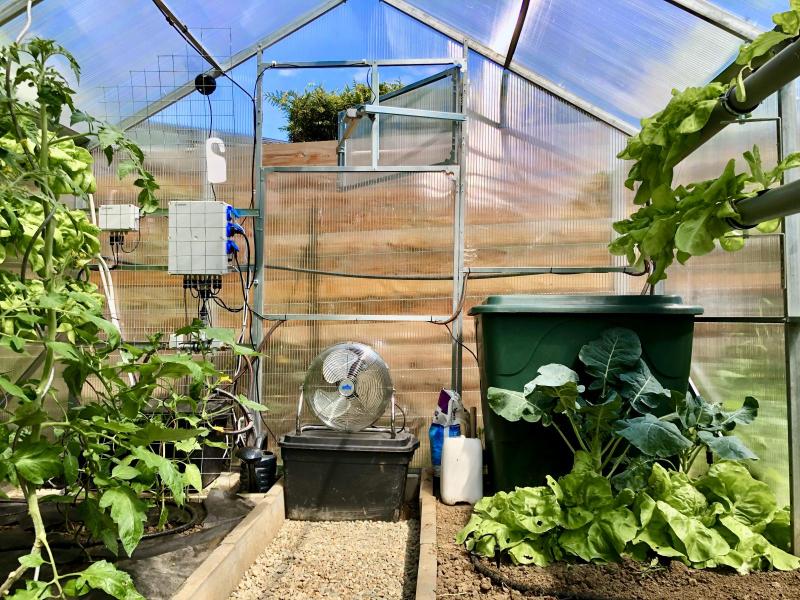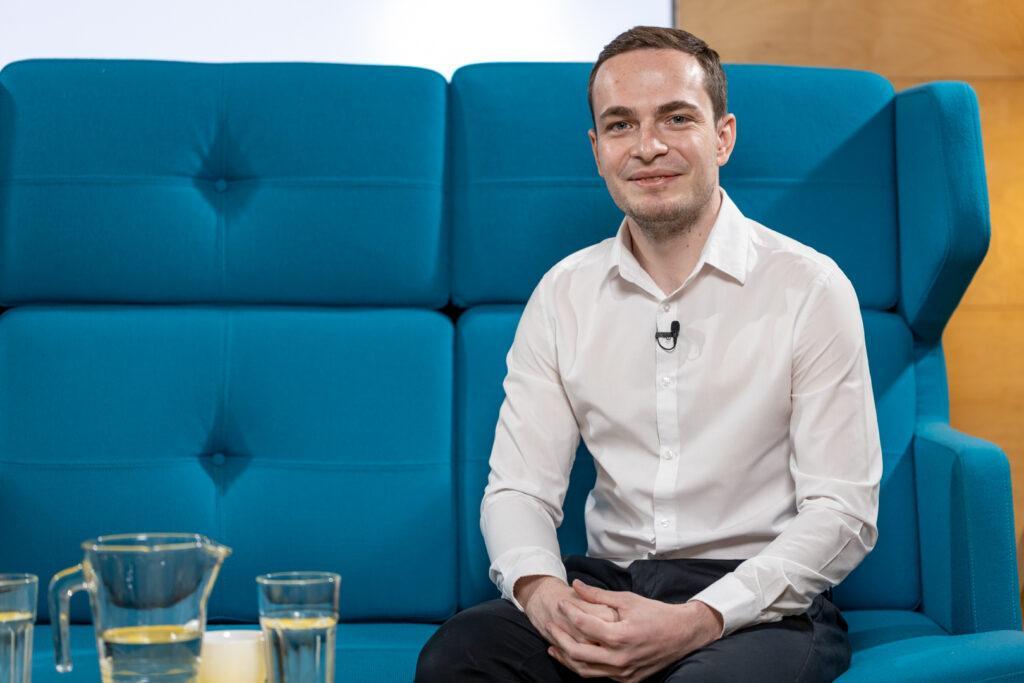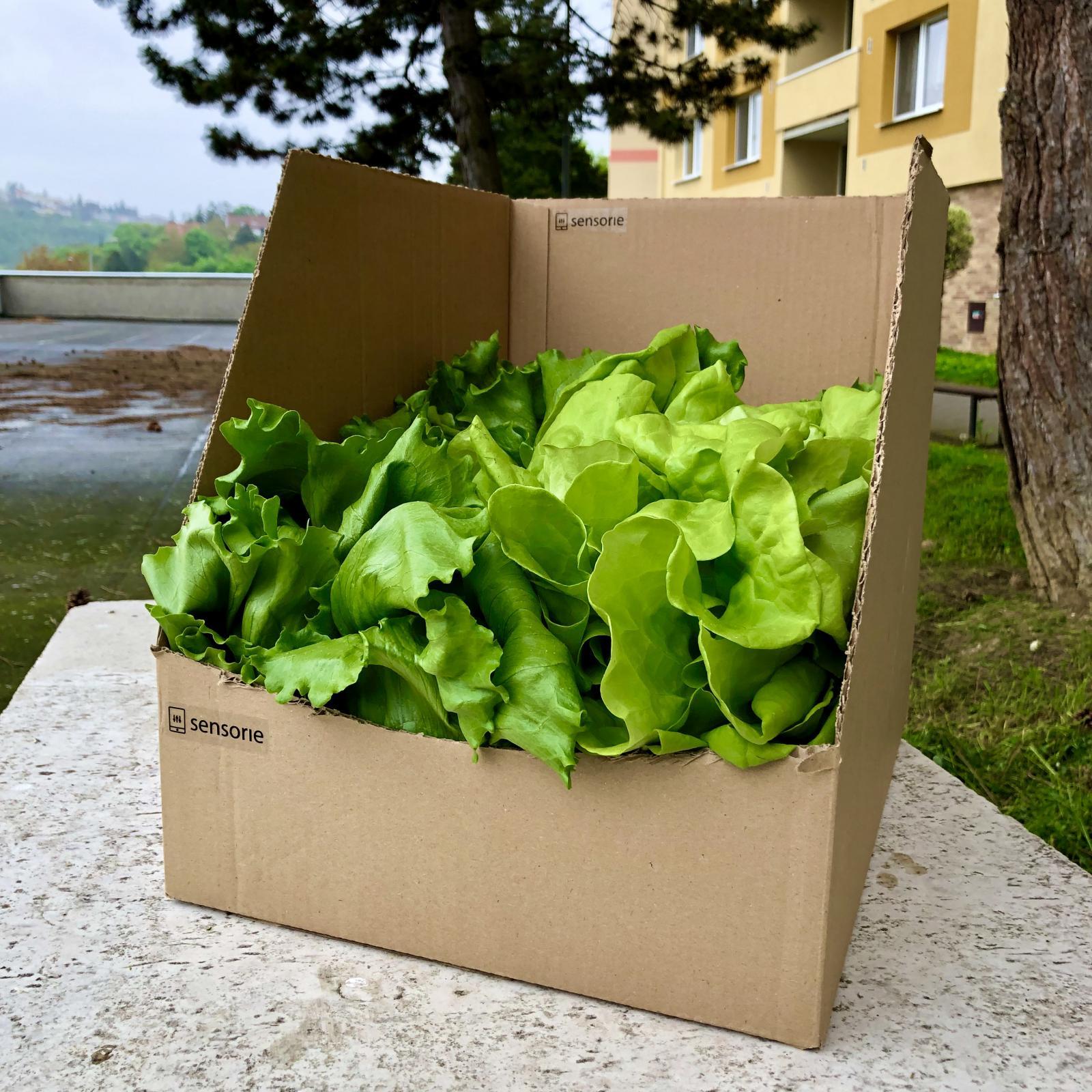Ideas and discoveries
Sensorie greenhouse wants to make growing vegetables at home the norm. It offers smart solutions for year-round harvesting

David Bažout from FIT (Faculty of Information Technology) BUT (Brno University of Technology) is turning classic greenhouses into smart ones. Inspired by his dad's story, he decided to create a system that would make growing vegetables and fruit at home much easier. Almost a hundred gardeners across the Czech Republic already have a smart greenhouse from Sensoria and the team around David Bažout will expand the existing smart equipment with a unique hydroponic system soon.
From March to Christmas your own fresh vegetables. In the context of current prices, this sounds like a very tempting offer to more and more Czechs. However, in an ordinary greenhouse they often struggle to achieve conditions that make almost year-round cultivation possible, and the demands of the present day don't help them either.
David Bažout from FIT BUT came up with a solution for exactly these situations. His startup Sensorie can make a “smart” greenhouse out of anyone. By combining the control unit, sensors and a custom app, the owner can set the ideal conditions and monitor what is happening in the greenhouse from anywhere. “The main idea is that you just choose the conditions you want to keep in your greenhouse. Our control unit then takes care of the rest,” confirms Bažout.
He was inspired by his dad, who is an enthusiastic gardener. But according to David Bažout, at the same time he is a very busy person who has no time to deal with the garden alone. Sensorie was created for just such people. Thanks to automation, you can grow your own vegetables and fruit almost all year round, but you can also go to work, spend time with your family or enjoy your hobbies.
It is an investment that will pay for itself in three years
Almost a hundred Czech gardeners have purchased Sensoria solutions since the company was founded. “We have quite a lot of good feedback, based on which we have tried to fine-tune the system both in terms of technology and user-friendliness,” he says.

Unique hydroponic solution is functional and affordable
While last year's war in Ukraine significantly increased people's interest in greater food self-sufficiency and the possibility of year-round cultivation, a significant increase in energy prices also affected sales. Sensoria, however, was not discouraged by the situation. It only pointed in a new direction. “We were accepted into the technological incubation and thanks to that we were able to start developing our own hydroponic system,” says David Bažout.

For now, the hydroponic system from Sensoria is still in testing. It should go on sale in the autumn of this year. According to David Bažout, many of the current customers can't wait. “We always try to make new features available to anyone who has purchased from us in the past. We're working on it so that the news can be connected to the existing system,” he points out. This will make it possible to combine hydroponics with conventional soil cultivation within the Smart Greenhouse from Sensoria.
Community greenhouse offers places to rent and fresh vegetables

At the beginning, David Bažout didn't expect to end up with hydroponics and growing. “But when we see how satisfied people are and how it brings them something, it motivates me and my colleagues a lot. We see the real result of our work and that we are helping. Thanks to this, we still enjoy our work,” concludes David Bažout with a smile.
(zeh)
Tomáš Dacík focuses on static analysis of programs. For his work he received the Brno Ph.D. Talent
Doctoral students in engineering study the behaviour of the circulatory system. Neural networks also help them
Matús Nosko from FIT BUT came up with an original ecosystem for smart homes. His equipment sells by the dozens
ARGO underwater: Prototype of student submarine on display at IDET Fair
Even in a highly competitive environment it is possible to build a successful global company, the founder of codasip Karel MAsařík tells students of BUT